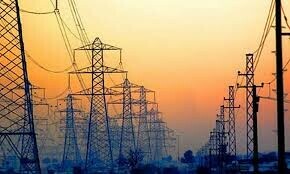ISLAMABAD: The power regulator on Friday allowed an upfront tariff of 71 paisas per unit to be charged to consumers for evacuation of up to 4,950 megawatts of electricity from Thar and Karachi to load demand centres in Punjab as part of China-Pakistan Economic Corridor (CPEC).
The special upfront tariff — first for a transmission line — was approved by the National Electric Power Regulatory Authority (Nepra) for 878-kilometre Matiari-Lahore transmission line to be built by a Chinese firm at a cost of $2.1 billion to evacuate upcoming 4,950MW of electricity from coal-based power plants at Thar, Hub and Port Qasim.
This will also be the first transmission line project in the private sector and its tariff petition filed by the country’s only transmission line operator with 14,000km of operational lines — National Transmission and Despatch Company (NTDC) — was twice rejected by Nepra in November 2015 and January 2016, saying it was against the rules to offer an upfront tariff for a single project. It also objected to a project’s tariff being executed without competitive bidding.
It, however, allowed the upfront tariff for the same project when the petition was filed by the Private Power and Infrastructure Board (PPIB) along with the government directives. None of the parameters has been changed except that the petition was filed by the PPIB this time on behalf of NTDC.
The NTDC and China Electric Power Equipment and Technology (CET) — a subsidiary of State Grid Corporation of China — had already entered into a cooperation agreement in April 2015 as part of priority projects of CPEC.
Based on engineering procurement and construction (EPC) cost of $1.76bn and other cost build-ups total $2.1bn, the PPIB had requested Nepra for a transmission tariff of 95 paisas (0.914 cents) per unit (kWh) for 30-year life of the transmission line. It will involve 80:20 per cent debt-equity ratio.
Nepra, however, worked out an upfront tariff of 71 paisas per unit for 25-year operational life of the transmission line. It noted that the government had given guarantee to the Chinese firm for ensuring payment obligations of NTDC, protection against NTDC default for any transmission service agreement, protection against any other defaults by NTDC to CET, protection against change in laws and political force majeure risk.
The tariff petition has been prepared purely on the basis of “financial and technical data received from the CET. The project will be transferred to NTDC on completion of 25 years.
NTDC and the Chinese firms had signed cooperation agreement for two similar transmission lines. Apart from Lahore-Matiari, the other project included 660kV High Voltage Direct Current (HVDC) transmission line from Port Qasim to Faisalabad with 4,000MW capacity but that was not part of this petition.
It will be a 660kV HVDC for Matiari-Lahore transmission line of 878km for wheeling 4,000MW generation in southern part of the country to mid country load centres. However, due to constraints on public sector resources and borrowing capacity of NTDC, the government had announced a policy framework for transmission line development in the private sector. “The induction of private sector in the transmission line would result in capacity additions in the system and bring about stability, reliability and sustainability”.
The transmission line would have the maximum capacity of transmitting 4,000MW from generation capacity of about 4,950MW from 660MW Engro Thar Coal plants, 1,320MW of SSRL Thar Coal, 1,320MW of Port Qasim project, 660MW each of two Hub Coal Power plants and 330MW of Siddique Sons Energy.
The NTDC had opted for HVDC 660kV line for the bulk power transfer through a long distance line on the basis of feasibility and cost studies through SNC-Lavalin of Canada in 2013. Two converter stations at Matiari in Sindh and Lahore will also be part of this project to interface with the existing transmission system.
The transmission line would pass through mostly rural land away from settlements and obstruction with least temporary loss to crops and trees to be properly compensated. It said the Chinese investor had been involved in the project because “currently there exist a number of lengthy, time and money consuming complicated procedures due to which private investors are problem-stricken” like provision of bank guarantees, finalisation of project agreement with multitude of government agencies.
Moreover, the project was associated with power generation plants on imported and local coal at low operating costs that would save billions of dollars annually that would otherwise be needed for import of oil for equivalent electricity generation.
The project will take 36-42 months to be developed in parallel with power generation plants at Thar, Hub and Port Qasim and would be ready to evacuate power from those plants on their commercial operation.
Published in Dawn, August 20th, 2016











































